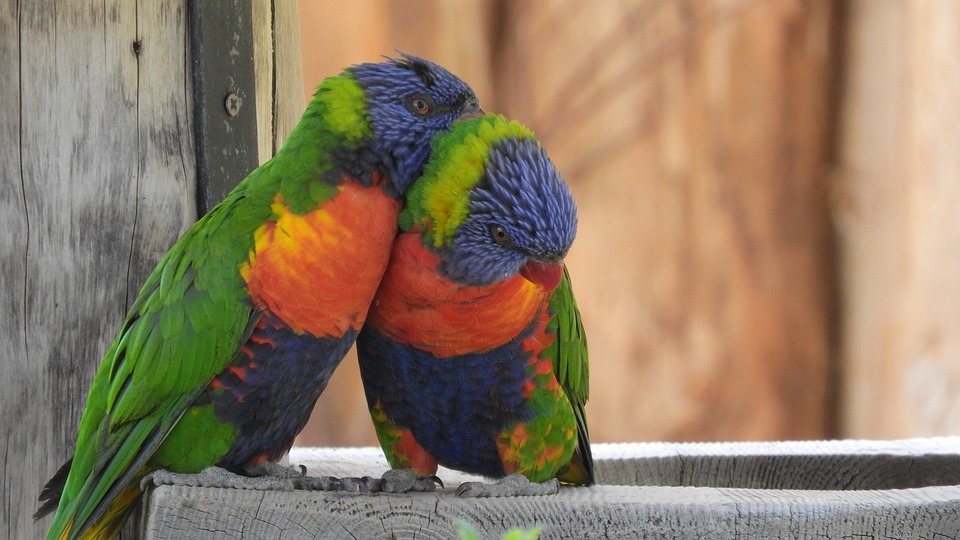Parrots are known for their intelligence and ability to communicate, but sometimes their begging behavior can leave their owners puzzled. Whether it’s incessant squawking, clinging to your shoulder, or giving you those irresistible puppy-dog eyes, understanding the reasons behind begging behavior is essential for maintaining a harmonious relationship with your parrot. In this article, we will explore the causes of begging behavior in parrots and provide practical solutions to address this issue.
Begging behavior in parrots can be defined as any action or vocalization that seeks attention, food, or interaction from their owners. It is important to note that begging behavior is a natural instinct for parrots, as it is their way of communicating their needs and desires. Understanding the developmental stages of begging behavior can help parrot owners recognize and address it appropriately.
During their early stages of development, parrot chicks naturally beg for food from their parents. This behavior is vital for their survival, as it ensures they receive the necessary nourishment. As they grow older, parrots may continue to display begging behavior as a means of seeking attention and forming social bonds with their human companions.
There are several common causes of begging behavior in parrots. One of the most obvious reasons is hunger and nutritional needs. Parrots have a high metabolic rate and require a well-balanced diet to thrive. If their feeding schedule is inconsistent or their diet lacks essential nutrients, they are more likely to engage in begging behavior.
Attention-seeking is another common cause of begging behavior. Parrots are highly social creatures and crave interaction with their owners. If they feel neglected or bored, they may resort to begging for attention as a way to engage with you.
Reinforcement and reward can also contribute to begging behavior. If a parrot has been rewarded in the past for begging, they are likely to continue the behavior in the hopes of receiving a desired outcome, such as treats or attention.
Lastly, begging behavior can be a result of socialization and emotional bonding. Parrots are intelligent animals that form strong attachments to their human companions. Begging can be a way for them to strengthen the bond and feel included in their owner’s activities.
Now that we understand the causes of begging behavior, let’s explore some practical solutions to tackle this issue. Firstly, establishing a consistent feeding schedule is crucial. By feeding your parrot at regular intervals, you can reduce their urge to beg for food.
Providing a balanced and nutritious diet is also essential. Consult with an avian veterinarian to ensure your parrot’s diet meets their specific nutritional needs. A well-fed parrot is less likely to engage in begging behavior.
Encouraging independent foraging is another effective solution. By providing your parrot with puzzle toys or foraging opportunities, you can stimulate their natural instincts and keep them engaged, reducing the need for attention-seeking behaviors.
Reinforcing positive behaviors is key to curbing begging behavior. Reward your parrot for exhibiting calm and patient behavior, and ignore or redirect their begging attempts. Consistency is crucial in reinforcing positive behaviors.
Offering enrichment activities is another way to distract your parrot from begging. Provide them with a variety of toys, puzzles, and activities to keep them mentally stimulated and physically active.
If despite your best efforts, begging behavior persists, it may be helpful to seek professional advice. An avian behaviorist or veterinarian with expertise in parrot behavior can provide personalized guidance and solutions tailored to your parrot’s specific needs.
Now, let’s address some frequently asked questions regarding parrot begging behavior:
Q1. Is begging behavior in parrots a sign of hunger?
Begging behavior in parrots can indicate hunger, but it can also be a result of other factors such as attention-seeking or socialization needs. It’s important to evaluate your parrot’s overall behavior and consult with a veterinarian if you have concerns about their nutritional needs.
Q2. How can I differentiate between attention-seeking behavior and genuine hunger?
Observing your parrot’s body language and overall behavior can help you differentiate between attention-seeking behavior and genuine hunger. Signs of hunger may include increased vocalization, pacing, or a focused interest in food. If you’re unsure, consult with a veterinarian for guidance.
Q3. Can parrots learn to associate begging with receiving food?
Yes, parrots can quickly learn that begging behavior often results in receiving food or attention. It is important to be consistent in not rewarding begging behavior to prevent it from becoming a learned behavior.
Q4. Will ignoring my parrot’s begging behavior make it stop?
Ignoring begging behavior can be an effective strategy, as it removes the reward and reinforces that begging will not lead to the desired outcome. However, it is important to provide alternative positive behaviors and enrichment activities to redirect their attention.
Q5. Are there any specific toys or activities that can distract my parrot from begging?
Every parrot is unique, so it may take some trial and error to find the toys and activities that best distract your parrot from begging. Puzzle toys, foraging toys, and interactive toys can be a good starting point. Observe your parrot’s preferences and consult with avian experts for recommendations.
In conclusion, understanding the underlying causes of begging behavior in parrots is crucial for addressing and managing this issue effectively. By establishing a consistent feeding schedule, providing a balanced diet, encouraging independent foraging, reinforcing positive behaviors, offering enrichment activities, and seeking professional advice when needed, you can help your parrot overcome begging behavior and foster a healthy and well-adjusted relationship with your feathered companion.









